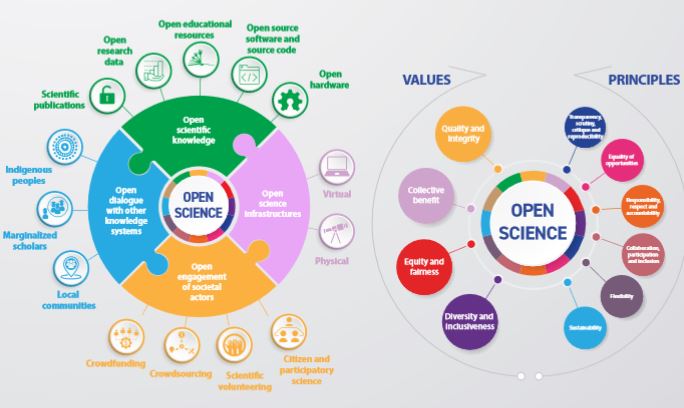UNESCO Open Science Toolkit

The UNESCO Open Science Toolkit is designed to support implementation of the UNESCO Recommendation on Open Science, the first international standard-setting instrument on open science.
According to the UNESCO Recommendation, open science is a set of principles and practices that aim to make scientific research from all fields accessible to everyone for the benefit of scientists and society as a whole.
The Toolkit is a set of guides, policy briefs, factsheets and indexes. Each piece is a living resource updated to reflect new developments and the status of implementation of the Recommendation.
The elements of the UNESCO Open Science Toolkit are developed in collaboration with UNESCO Open Science partners or through discussions with and inputs from the members of the UNESCO Working Groups on Open Science.
Understanding open science
This factsheet explains the definition of open science and its key pillars and elements as set out in the Recommendation.
Building capacity for open science
The key factors to consider in capacity building and training for open science have been identified with input from the UNESCO Working Group on Open Science Capacity Building.
Developing policies for open science
Guide
Developed through the discussions and inputs from the members of the Working Group on Open Science Policies and Policy Instruments, this guide sets out the key factors to consider when developing policies for open science.
Funding open science
Building upon assessments of existing open science funding mechanisms and the resourcing gaps facing open science today, the aim is to provide guidance for integrating the principles of open science into the process and practices of funding science.
Bolstering open science infrastructures for all
Building on the provisions of the Recommendation, the guide was developed in consultation with the UNESCO Working Group on Open Science Infrastructures to build a shared understanding and identify steps for strengthening equitable and sustainable open science infrastructures.
